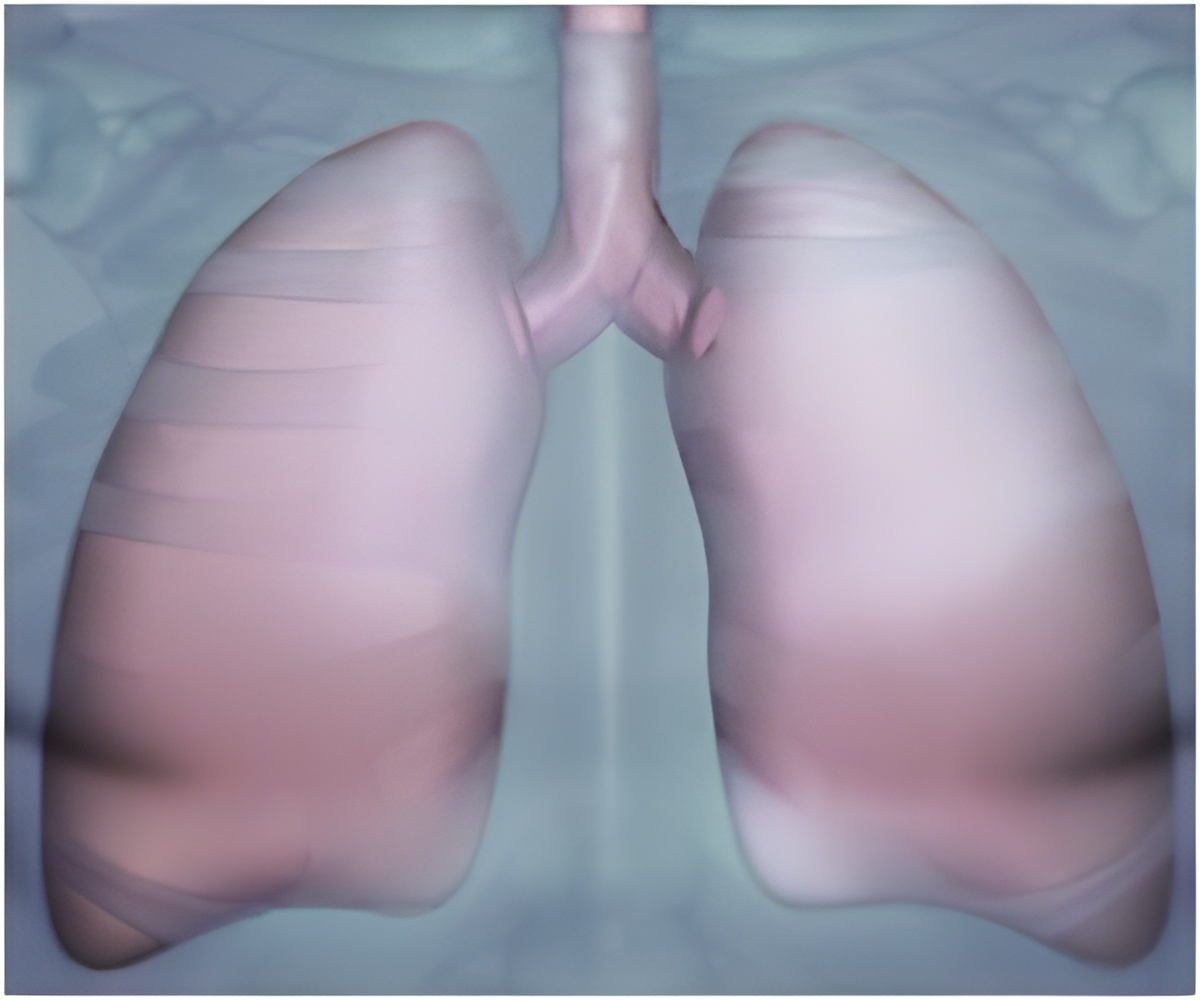A new research finds women who undergo radiotherapy for breast cancer are at an increased risk of subsequently developing a primary lung tumor.

"Our findings suggest that any reduction in the dose of radiation to the lung would result in a reduction in the risk of radiation-induced subsequent lung cancers. With the advances in breast cancer treatment and the introduction of breast cancer screening, a growing number of women are becoming long-term survivors, and so we need to have an increased awareness of treatment-induced second cancers and take steps to reduce those risks by using radiotherapy techniques that spare normal tissue as much as possible."
Dr Grantzau, a doctor in the department of experimental clinical oncology at Aarhus University Hospital (Aarhus, Denmark), and her colleagues investigated the incidence of second primary lung cancers (i.e. a new lung cancer and not a secondary tumour that has spread from the original breast cancer) in a group of 23,627 women in Denmark who had been treated with post-operative radiotherapy for early breast cancer between 1982 and 2007. Among this large group of women, 151 (0.6%) were diagnosed with a new lung cancer (the group of cases) and they were matched with 443 women who had not developed lung cancer (the control group).
In a previous study including the 23,627 irradiated women and, additionally, 22,549 unirradiated breast cancer patients, results showed that the risk of developing a radiation-induced second lung cancer was approximately one in every 200 women treated with postoperative radiotherapy. "In the current study, we wanted to see if there was a dose-response correlation for second primary lung cancer after breast cancer irradiation. We further wished to estimate the excess relative risk per delivered Gray to the lung. As smoking is strongly correlated to lung cancer, we also looked into the effect of radiation and smoking," explained Dr Grantzau.
The researchers retrieved radiotherapy records of the previous breast cancer radiation treatment (including the delivered dose, field size and treatment technique) together with the smoking status for all cases and controls. For the cases they also obtained radiographic images of the lung cancers. With this information they were able to reconstruct the ways that the women had been treated for the original breast cancer and to estimate the amount of radiation that was delivered to the part of the lung where the subsequent tumour developed. They tested the accuracy of their calculated radiation doses on a model, or "phantom", and made adjustments to take into account the higher doses that they found were actually delivered to areas outside the main field of radiation.
The median age of the women when they were diagnosed with breast cancer was 54 (with a range of 34-74) and the median age when a second primary lung cancer was diagnosed was 68 (range 46-90). Seventy percent of the lung cancers were diagnosed five or more years after radiotherapy for breast cancer, ranging from five to 26 years. The majority (91%) of the lung cancer cases were smokers, whereas 40% of the controls were smokers.
Advertisement
"These results show that the risk of second lung cancer after radiotherapy in early breast cancer patients is associated with the delivered dose to the lung," said Dr Grantzau.
Advertisement
She added: "Furthermore, clinicians should be continually advising breast cancer patients to quit smoking in order to reduce their risk of developing lung cancer. It's important to emphasise that the risk of getting a tobacco-induced lung cancer is much higher than the risk of getting a radiation-induced second lung cancer.
Professor Vincenzo Valentini, president of ESTRO and a radiation oncologist at the Policlinico Universitario A. Gemelli, Rome, Italy, commented: "This research shows the importance of monitoring the safety of radiotherapy procedures so that we can use the information gained to achieve a good balance between the risks and benefits of a particular treatment. Reducing the radiation dose to normal tissue is always beneficial, and knowing the exact target and the best radiation dose will help to reduce any long-term side-effects of a therapy that research has long shown to be instrumental in helping to save the lives of women with breast cancer. Dr Grantzau's research suggests there is a small increased risk of lung cancer in the years after radiotherapy for breast cancer, particularly in women who smoke. This underlines the importance to women of not smoking, as this increases the risk of a range of diseases. We, as radiation oncologists, will continue to work to monitor and improve the safety and efficacy of our therapies."
Source-Eurekalert















